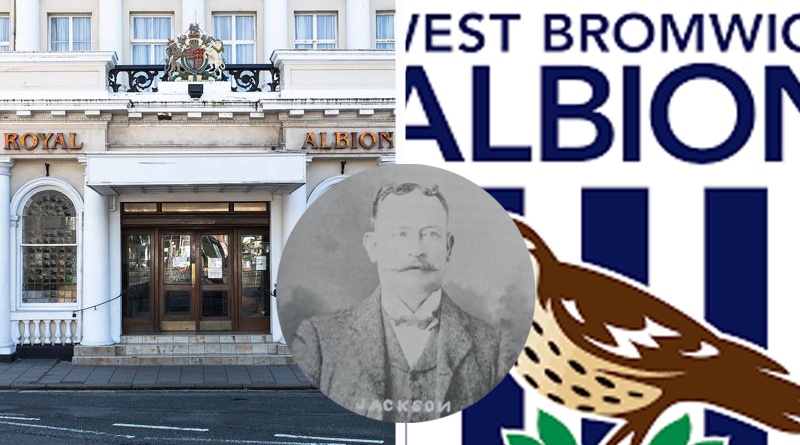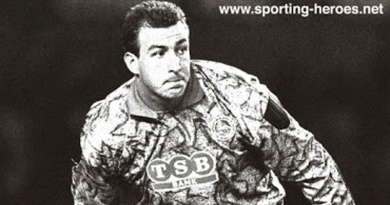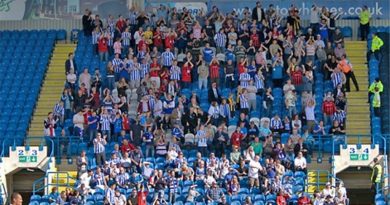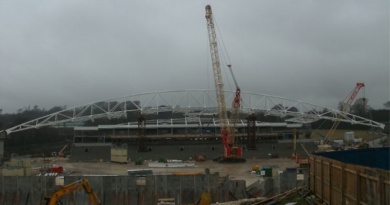Where did the name Brighton & Hove Albion come from?
Where did the name Brighton & Hove Albion come from? It’s a question that has been pondered for over 100 years by Seagulls supporters and the answer is that nobody actually knows for sure.
The history of Brighton’s name has come under something of a spotlight following the bizarre news that Brighton are to attempt to trademark the term Albion.
According to the Daily Telegraph, the reason behind the copyrighting is to “protect supporters”. Quite how or why the club think that owning a 2,600-year old Celtic word for Great Britain is protecting supporters we don’t know, but it does at least give us an opportunity to explore how the Albion came to be known as the Albion.
The term itself refers to the island that we currently live on. It was a name originally used by the Celts before being adopted by Greeks and the Romans.
The Britannic Encyclopedia states that Albion translates to “white land”, a reference to one of the country’s defining natural landmarks, the chalk cliffs of Dover.
How Brighton ended up as the Albion is a story which begins with the founding of the club. The Southern League had promised a place in Division Two to Brighton & Hove Rangers ahead of the 1901-02 season.
When Rangers suddenly went out of business in early June 1901, the town had a guaranteed spot in the Southern League but now no team to fill it.
It was at this point that John Jackson took it upon himself to lead the formation of a new club to take the available spot.
When the new club were formed on Monday 24th June 1901 at the Seven Stars pub in Ship Street, the original name was Brighton & Hove United.
Jackson himself had been the manager of Brighton United, the forerunners to Rangers who played in the Southern League for two seasons between 1898 and 1890. This is the most likely reason for the choice of United.
The name caused a furious reaction at the town’s other club, Hove. A renowned amateur outfit who were the original tenants at the Goldstone Ground before the Albion moved in, Hove felt that a club with the name Brighton & Hove United created the impression that they had amalgamated with the newly formed team. Hove were determined to keep their indentity.
To appease Hove, Brighton & Hove United instead took the name Brighton & Hove Albion. Had the amateurs not kicked off, we would all be United rather than Albion supporters.
Imagine Manchester United 2-2 Brighton & Hove United in the 1983 FA Cup final. Talk about boring. Thank God Hove forced the change and we have our current name, only shared by two other teams in English professional football.
There is no definitive answer as to why the name ‘Albion’ was chosen, but there are two leading theories – and both are laced with irony given that Brighton are now attempting to trademark Albion as their own.
The first story goes that Jackson had a soft spot for West Bromwich Albion, and decided to copy the midlands club for both their name and their blue and white colours.
Why Jackson would have wanted to pay homage to the Baggies is unclear. He was born in Birmingham, played for Coventry Rovers and was assistant manager of Wolverhampton Wanderers before arriving in Sussex at Brighton United in 1898. Despite those links with the midlands, there is nothing to suggest he was a West Brom fan.
Bert Baker, Brighton’s outside-right from the 1901-02 season, later claimed that it was he who suggested the name Albion.
Again, there is nothing to substantiate that claim; Baker was Brighton-born-and-bred, playing 20 times for the Albion.
He went onto serve the Brighton & Hove District Schools FA for 50 years and returned to the Albion to work in the club’s offices after retiring as a teacher. Why Baker would have wanted the club named after West Brom is anybody’s guess.
The second theory is that the football club decided to incorporate Albion because the term already had a strong presence in the town.
Many pubs, hotels and businesses took the name – which again makes something of a mockery of the club wanting to claim it as their own given its links with Brighton predate the football club.
The Royal Albion Hotel in the Old Steine was opened in 1826 and is still going strong to this day. Based on Albion Street opposite St Peter’s Church was the Albion Brewery and its associated pub, the Albion Inn.
The Albion Brewery was purchased by Tamplins Brewery, which held shares in both Brighton United and the Albion. Tamplins also owned the Farm Tavern of which Jackson was landlord, creating a direct link between the Albion Brewery and the man who formed Brighton & Hove Albion.
Located at 35 Queens Road, just up from where Brighton’s town centre shop during the Withdean years was housed, was a temperance hotel called the Albion Hotel.
Temperance hotels were a type of pub which sold no alcohol. This venue – which sounds like hell on earth – was owned by Tom and Harry Gadd.
The Gadd brothers were involved with the Albion from that first meeting at the Seven Stars and both of them became directors in 1904. Before they opened the Albion Hotel, an Albion Coffee House filled 35 Queens Road.
Albert Grinyer was another founding member who joined the board in 1904. He owned the Albion Inn, which still exists to this day at 110 Church Road, Hove.
Unfortunately, one local business that did not lend its name to the football club is the famous Albion Kebabs shop on Queens Road.
Albion Kebabs did not start trading until some years later, although we are sure that Jackson, Baker and all the other leading lights of 1900s Brighton & Hove Albion would have popped in for chicken and chips if it did exist, as the WeAreBrighton.com team once saw Gaetan Bong doing.
Rather than wanting to be the next West Bromwich Albion, it seems likely then that Brighton & Hove Albion were named because of these local business, the businessmen who ran them and the role they played in forming the club. What better way to promote your hotel, pub or beer than by attaching its name to the local football club?
Short of some previously unearthed documents being discovered which shed further light on the club’s name, we will never know for certain what the actual story was.
But whichever version is the truth, Brighton’s attempts to trademark the word look increasingly moronic when those who founded our football club would have fallen foul of copyright law themselves had the idea of intellectual property existed back in 1901.
WeAreBrighton.com have made it through to the final of the Football Content Awards 2020 – the only Brighton representatives across all 17 categories. Please could you take 20 seconds to fill out the below form to vote for us as the Best Club Website in the country. Thank you.




